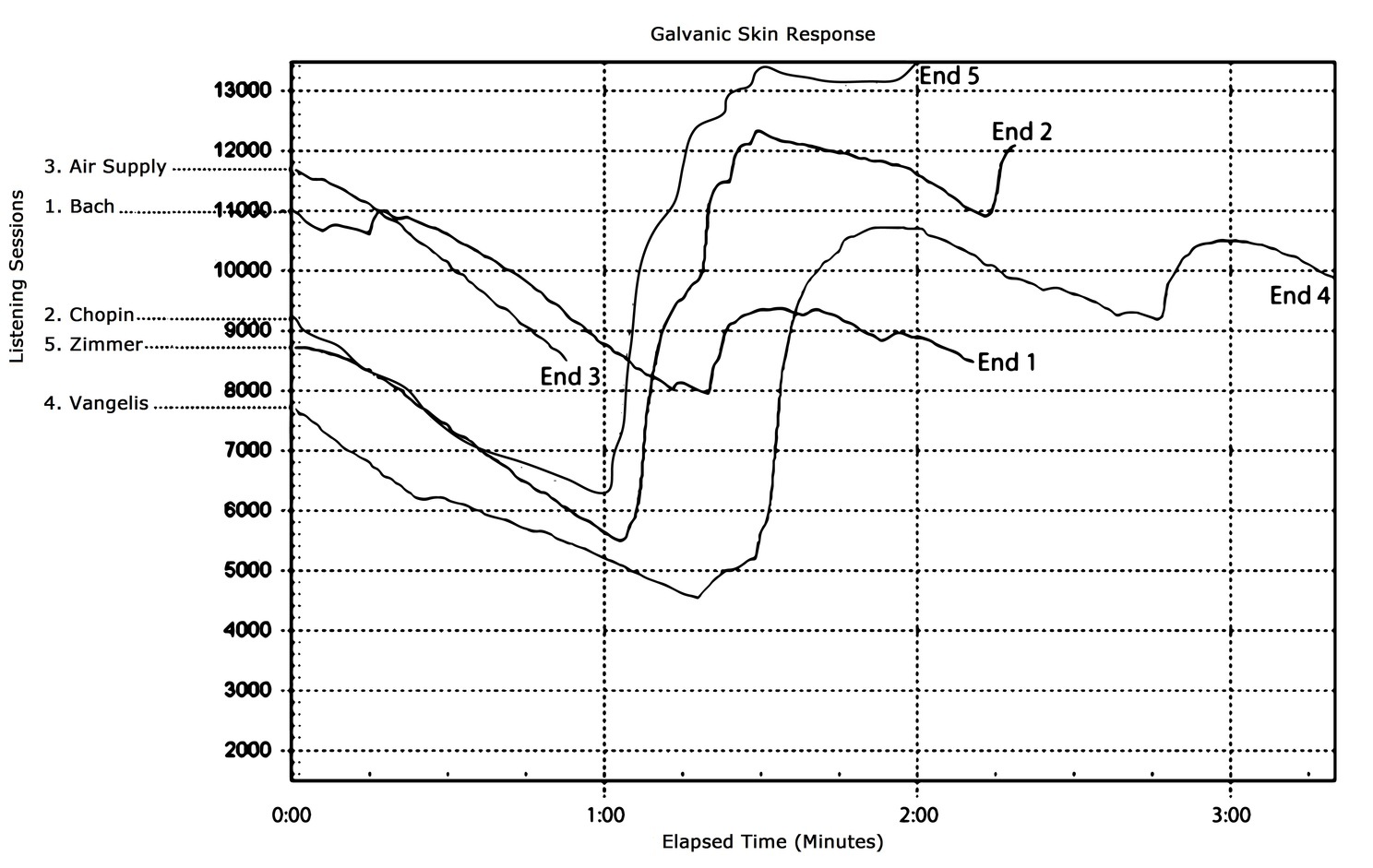Why do some people feel an emotional chill from music
The ancient temperature trigger in the human brain tuned to new inputs

Trembling, trembling, goose bumps, goosebumps, chills, skin orgasm, in English frission, cold chill - all these are the names of the same phenomenon for which there is no established term in the language. Scientifically, these are transcendental psychophysiological experiences , or more simply, a wave of pleasure that sometimes passes through the skin while listening to certain pieces of music. As a trigger, not only music is triggered, but also physical contact with a person, an emotional scene in a feature film, etc. On Reddit there is even a community / r / frission , the members of which share with each other the triggers of “skin orgasm”.
Why does such a psychophysiological reaction to emotional stimuli occur? Why is it observed not at all, but only at some people? Scientists have not been able to fully study this phenomenon, but half a century of research allows us to make some assumptions.
Amani El-Alayli, a professor of social psychology at Eastern Washington University, explains that the cause of the emotional chill can be a piece of music that includes unexpected harmonies, sudden changes in loudness, or just the artist's appearance on the stage.
')
One of the emotional chill triggers with the Reddit community
Previous scientific studies have identified several pieces of music that most often have an effect. Here are some of them:
- The first two minutes and 11 seconds of Bach’s Passion According to John: Part 1 (Herr, unser Herrscher) , the moment of joining the choir
- The first two minutes and 18 seconds of the concerto for piano and orchestra No. 1: II (Chopin)
- First 53 seconds of Air Supply “ Making Love Out of Nothing At All ”
- The first three minutes and 21 seconds of the work of Vangelis for NASA’s mission “ Mythodea: Movement 6 ”
- The first two minutes of Hans Zimmer’s work “ Oogway Ascends ” (used as the soundtrack for the Kung Fu Panda cartoon)
Such a reaction can occur not only from the music. For example, here is another example from the Reddit community: a video of an interview with a prisoner of war who transmits the word “torture” in Morse code.

Some physiologists and zoologists suggest that emotional chills are an evolutionary rudiment left over from our distant (and more hairy) ancestors. They warmed the body, creating an endothermic layer of warm air around the skin directly under the hair (under the hairs of the skin). That is, the same principle of thermoregulation works here, because of which curly hair is more often found in residents of hot countries. Curls protect only the head, and raising the hair with a sharp change in the ambient temperature immediately protects the whole body.
With the invention of clothes, the need for such thermoregulation was no longer necessary, but the trigger itself remained in the brain and somehow reconfigured to a new set of input data, namely, emotional sensations. Now the effect occurs when a sharp change of emotions, and not the ambient temperature. Accordingly, the trigger becomes any object that causes a sharp emotional response.
According to various estimates, between 55% and 86% of the population experience an effect.
The University of Eastern Washington conducted a large-scale study, the participants of which listened to the above-mentioned fragments and reported on their reaction at the touch of a button.

Previous studies have found that people who experience this effect more often also show a higher rate of openness to experience . As it turned out , such people have an unusually active imagination, appreciate beauty and nature, are looking for new sensations, often deeply immersed in their feelings (reflect) and love diversity in life.
New research has given another result: here the frequency of emotional chills is directly related to the degree of immersion in music. In other words, we are talking not so much about the emotional, as about the cognitive components of the psychological quality of "openness to experience."
The results of a study on the connection of emotional chills from music and cognitive abilities of the brain were published on April 27, 2016 in the journal Psychology of Music (doi: 10.1177 / 0305735615572358).
Source: https://habr.com/ru/post/394723/
All Articles